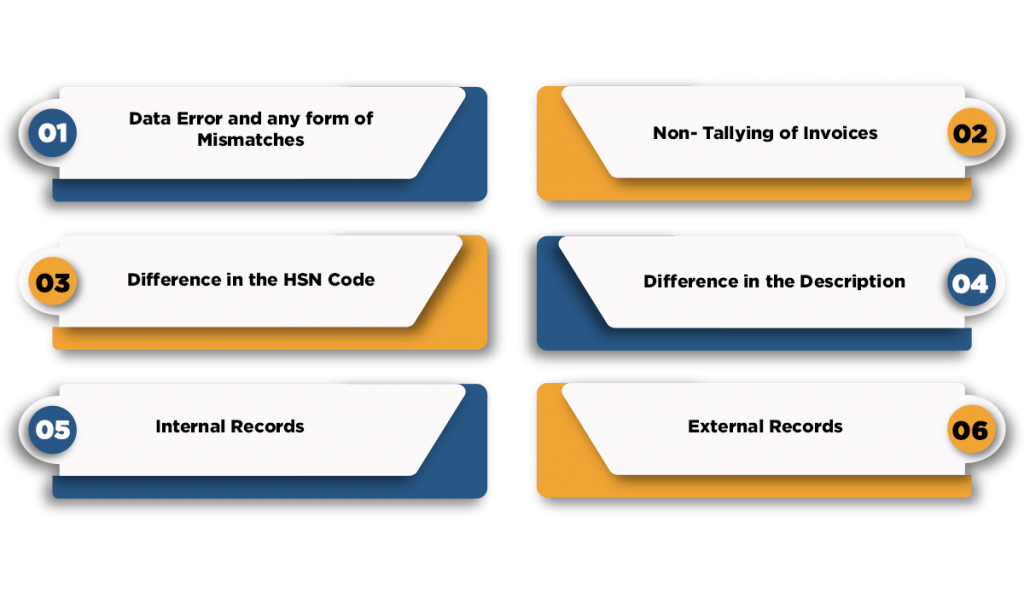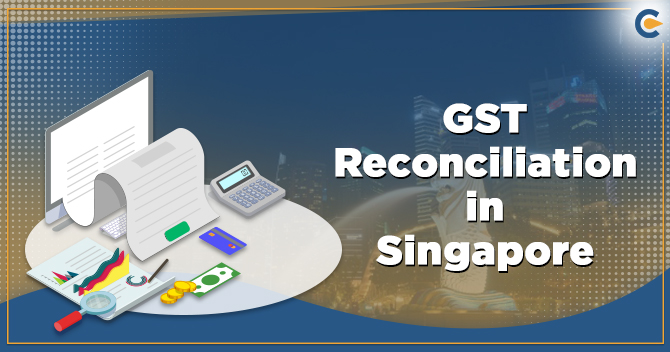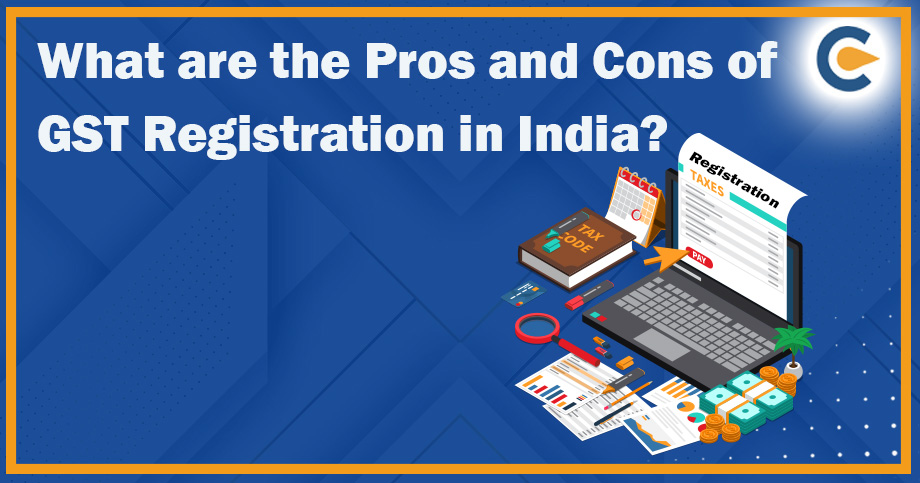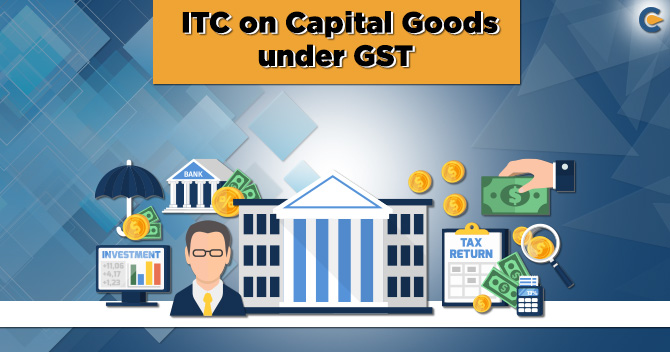Singapore is the largest financial centres, due to which international businesses are booming there. Companies that set up business in Singapore have to register with the Inland Revenue Authority of Singapore (IRAS), for filing GST and other forms of tax returns. GST Reconciliation in Singapore is the process where data or input provided by a supplier to match the data.
Through the process of reconciliation, any form of mismatches or omission would be avoided. The company carrying out this process would be capable of claiming some form of input tax credit. Plus, it would also be an advantage if reconciliation is carried out regularly. In the eyes of IRAS, the company would be reputed. It is mandatory for the business to file GST returns within a prescribed period of time. Similarly, it is important that the business or parties carry out the reconciliation process frequently.
The rate of GST charged in Singapore is at 7%. So basically, GST would be levied on a sale price of goods manufactured and other services rendered. Once it is levied, then the amount of GST collected would be provided to the relevant authority.
What is the GST Reconciliation in Singapore?
To understand the meaning of GST reconciliation in Singapore[1], it is first important to know what reconciliation is. Reconciliation is the term which is generally used in accounting processes, for comparing & checking records and other related documents. Mainly, the reconciliation is carried out by a business entity in order to understand, if there are any forms of mismatch in figures provided by a company and also to compare them in setting of records. Whenever reconciliation is carried out, then, there must be matching of records to the figures with a reconciled amount.
The GST reconciliation in Singapore is understood as matching records and data. In the process, data provided by a supplier of goods and services is analysed and also matched with data of the receiver of goods and services. The process is important in matching information of the receipts to the invoices charged. Once process of reconciliation is carried out, then it becomes simple to provide correct information to the IRAS and to avoid any form of penalties. Hence, if there are any mismatches in records of GST, then reconciliation would help in correcting the mentioned errors.
Read our article:GSTR-1 – Everything you need to know about Filings and Voluntary Compliance
Why is the GST Reconciliation carried Out?
GST reconciliation in Singapore is carried out to provide ease of records to the authority. The other reasons are as follows:-
- Reconciliation is a process of matching data that is provided by the supplier to the information/data received by the end-user of goods.
- All receipts and invoices are matched during a period of the accounting term for accuracy.
- When GST reconciliation is carried out, a business can ensure that no form of receivables and revenue obtained from sales and purchases can be wrongly reported to the IRAS.
- The GST reconciliation is carried out in order to ensure that there is no form of confusion or mismatches caused while filing of the GST return to the relevant authority.
- Through a process, this makes it simple for an entity and an authority to match GST returns properly.
- The reconciliation is carried out so that no wrong inputs are provided to an authority.
- The GST reconciliation process, can provide benefit to vendors and sellers they can claim such benefits from the IRAS when GST return is filed.
- The process is carried out so that the vendor can claim some form of input tax credit from the IRAS.
- In case invoices are not reconciled regularly, then to secure ITC (Input Tax Credit) becomes impossible for the vendor. Hence claiming the benefit of an input tax credit is necessary to reconcile GST regularly.
- Annual returns can be differentiated from the GST returns. For example, GST return is compulsory for any business that satisfies criteria for conducting business activities. These returns must be filed quarterly, i.e. at every three months. Annual returns required to be filed by the company on the regular basis. Hence, while having GST reconciliation, it is necessary to match the differences and check the GST returns and annual returns.
Is it Mandatory to Carry Out the GST Reconciliation?
The regulatory authority for GST registration and GST returns filing in Singapore is Inland Revenue Authority of Singapore (IRAS). It is mandatory to carry out any of the registration either voluntary GST registration or compulsory GST registration. Hence, it is necessary to file GST returns. The GST reconciliation must be carried out so that an authority does not impose penalties or late fees.
However the GST Taxpayer required paying proper returns to the IRAS. Reconciliation is carried out to reconcile certain amount of information or data that cannot be avoided in any form of omissions or confusions. The GST reconciliation is required to be carried out in most tax jurisdictions to avoid any form of discrepancies or penalties.
When the process is carried out, an amount of supply of goods or services provided is matched to number of purchases made. GST reconciliation takes time as the parties have to liaise with different authorities to reconcile amounts. Hence, the parties must pay attention towards this process.
Why is GST Reconciliation Required?
It is important to conduct GST Reconciliation for the below mentioned reasons:


Data Error or form of Mismatches
In case there is any differences arises in a data entered in invoices between any seller and taxpayer then GST reconciliation can be helpful. Such differences in information can lead to carrying out the process of reconciliation for knowing about the correct data.
Non-Tallying of Invoices
If any information or amounts written on the invoices are different then also GST reconciliation can be used to rectify that particular information.
The difference in the HSN Code
If there any difference in HSN code, then GST reconciliation is carried out to match the differences.
Internal Records
The main reason for doing GST reconciliation is to find out the errors in the internal records of a company. If a supplier of goods provides any invoices, and such information is not entered correctly in the internal records, then it will create an issue.
External Records
The process for reconciliation can also be considered if external records have no information. For instance, records of the GST invoice and data is present in the internal records of the firm or entity. In case the information is not present with the supplier or seller, then GST reconciliation will be utilised.
What happen in case GST Reconciliation is not carried out?
It is important to carry out the process of GST reconciliation. In case the business will not carry out the process of reconciliation regularly, then the following instances can happen:
- Not Conducting Reconciliation process will frequently lead to mismatches and errors while computing the GST.
- It will lead to delay in carrying out the filing of GST return with the IRAS.
- It may also cause penalties.
- Errors and Omission will also drastically reduce the reputation of the company with the IRAS.
- It is important to consider the GST reconciliation process in case you want to avail any benefits under Singapore Input Tax Credit.
- In case a company is not carrying out the process of GST reconciliation then it will not allowed a vendor to claim any special benefit of input tax credit.
Conclusion
Domestic companies & international companies having the business in Singapore must require registering with an authority for GST return filing. It is necessary to file GST return in Singapore in case any specific criteria have been met according to the authority. GST is the indirect tax that is levied on the goods manufactured and services rendered in Singapore. It is levied on any form of goods that are also imported in Singapore. Hence, any company which imports goods and products into Singapore would require to pay GST.
Read our article:Detailed Analysis on GST Registration in Singapore











